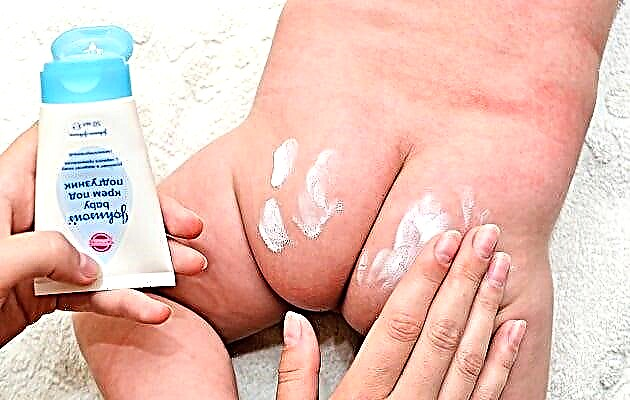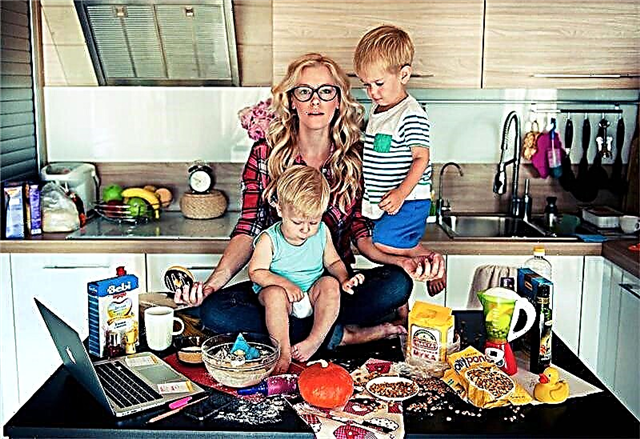In children under one year old, increased activity of the salivary glands is often noted. This can be due to a variety of reasons, from teething to acute respiratory illness. The main thing is to correctly determine the cause of this condition. In most cases, this problem does not require treatment and goes away on its own.

Baby drooling is common.
Causes of increased salivation at night
If the child chokes on saliva in a dream, it should be shifted from a position lying on his back, on his side or stomach, then mucus will not flow into the lungs, provoking a cough. The problem gets worse at night because:
- The baby lies on his back;
- The child does not move for a long time;
- The mucus flows down the back of the throat into the lungs;
- At night, the activity of the salivary glands increases.
This condition should not be considered a pathology, in children under one year old it is normal.
The most common cause of active saliva production is teething. Also, the volume of mucus secreted increases sharply when a child is sick with acute respiratory infections and acute respiratory viral infections. When the period of recovery comes, this condition disappears. The baby begins to choke on saliva, because the mucus from the mouth constantly gets into the throat, and the baby does not have time to spit it out.

The most likely cause of the problem is active teething
Saliva choking emergency help
Parents often wonder if the baby can choke on saliva, and why this is happening. This is really possible if the baby sleeps in a supine position. Also, a sleeping child may choke when spitting up. To prevent this from happening, after feeding, you should keep the baby in an upright position for about 15 minutes and only then put it in the crib.
Emergency help may be needed if:
- The mucus is thick and viscous, and the child cannot spit it out by himself;
- The baby has a badly clogged nose due to a runny nose;
- Salivation is caused by ingestion or inhalation of a foreign body;
- The child suddenly found it difficult to breathe.
In these cases, parents must act correctly so as not to harm the baby.
If the baby chokes
If the parents see that the child is choking on saliva, it is necessary to give the baby an upright position as soon as possible. An infant after six months who knows how to sit can be seated in pillows so that he sleeps in this position; children up to two to three months are laid on their stomachs. If the baby cannot breathe, he must be taken by the legs, turned head down and held in this position until he spits out mucus or a foreign body. This must be done quickly.
What not to do
When a child chokes and cannot clear his throat, parents should not be nervous, because excitement always interferes with acting correctly. Also, you can not sharply slap the baby on the back - this way you can push the mucus even further into the respiratory tract. If the baby screams loudly, do not prevent this - with a cry, he can independently get rid of the abundance of saliva. With increased salivation, it is impossible to limit the crumb in liquid, on the contrary, he should drink as much as possible. Sour drinks (for example, cranberry juice) should be avoided - they provoke excessive production of saliva.
Attention! You can not give the baby bagels or drying instead of a teether. The kid can bite off a small piece and choke. All rattles with small details inside, which the baby takes in the mouth, must be securely closed.

First aid must be provided quickly and correctly
When you need a doctor's help
If a child chokes with saliva in a dream due to a runny nose, snot flows down his throat and interferes with sleep. In this case, you should contact your pediatrician to prescribe antiviral drugs and vasoconstrictor nasal drops. Also, the help of a physician is needed if:
- The child has a red and swollen throat (this could be a sign of infection);
- Small ulcers are visible in the mouth, longitudinal grooves on the tongue (a characteristic sign of stomatitis);
- In addition to salivation, severe cough and high fever are observed;
- Baby teeth are erupting in the wrong sequence.
Usually, an infant begins a period of active drooling after six months, when the first milk teeth erupt. However, in some cases, this time begins much earlier - at three to four months. In this case, it is necessary to come to the doctor with the baby, since the premature appearance of teeth may indicate rickets and other diseases.
To alleviate the condition, you can give the baby a special children's toy - a teether. When a newborn girl or boy chews or sucks on such a rattle, the baby gets rid of excess saliva and pain in the gums, so it starts to feel better.
When the toddler turns one year old, the activity of the baby's salivary glands gradually slows down, but periodically resumes during the appearance of new pairs of milk teeth. At this time (up to 2.5 years), you should be especially careful about the health and well-being of the baby and make sure that he does not suffocate from increased salivation during sleep.
Potential consequences and complications
Situations when a child chokes with saliva are most often characteristic of acute respiratory diseases and the period of the appearance of teeth. Complications usually do not happen, any baby can choke or choke slightly, this is not scary.
However, if a child chokes on mucus from a runny nose and finds it difficult to breathe, self-medication or improper treatment can lead to bronchitis (pneumonia). In this case, antibiotic treatment will be required. If the baby begins to cough, this should be considered carefully.
The constant ingress of saliva on the chin of a newborn can lead to skin irritation: redness, itching, and discomfort. In this case, it is recommended to lubricate the affected area with any moisturizing baby cream containing panthenol. Also, do not rub the irritated skin with a towel. If the baby begins to salivate a lot, you can only gently blot it with soft cotton pads or a microfiber cloth.

The increased activity of the salivary glands is not a disease, but a normal physiological state
The opinion of Dr. Komarovsky
Komarovsky believes that coughing due to strong salivation is most often caused by the appearance of teeth, this condition does not require treatment. Even a healthy child must occasionally cough to clear the nasopharynx of saliva and mucus. However, if the baby begins to choke, urgent medical attention is needed, it is dangerous to self-medicate.
Attention! If the temperature rises above 38.5 degrees during the appearance of teeth, most likely, we can talk about the addition of an infection. This happens quite often, because during this period, the child's body becomes especially vulnerable.
The child's body is distinguished by special vulnerability and increased susceptibility to drugs, therefore it is strictly forbidden to give any medicine to the baby without prior agreement with the attending physician. The dosage should be appropriate for the age and / or weight of the baby.



